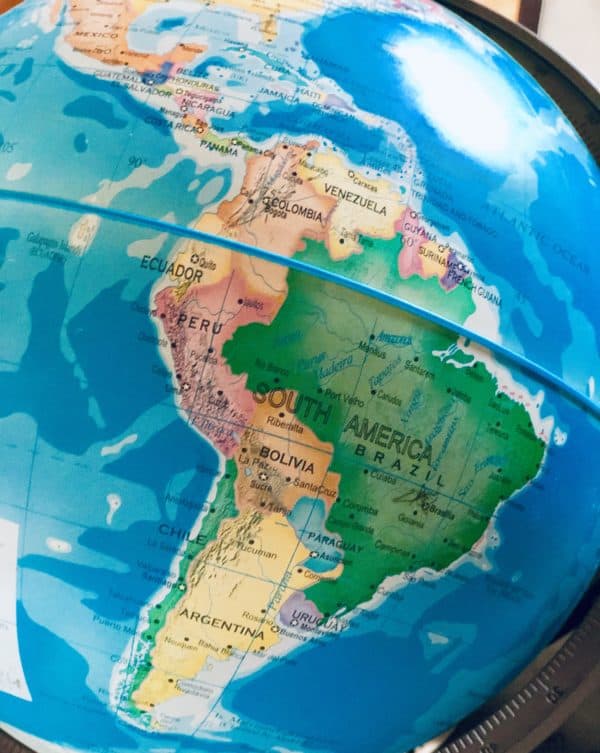The Cambridge Centre for Alternative Finance (CCAF), the top academic group studying Fintech, has published a report on digital finance in Latin America and its impact on SMEs’ access to capital.
The SME Access to Digital Finance Study: A Deep Dive into the Latin America Fintech Ecosystem, has been created with the support of Fintech LAC and the IDB/IDB Invest. The report covers online capital formation, including investment crowdfunding, online lending, and other iterations of digital finance.
The document focuses on six different Latam countries where “Fintech has taken off.” These include; Mexico, Argentina, Brazil, Chile, Colombia, and Peru. The majority of respondents were based in Brazil – the largest Latam country. The study also contrasts traditional finance (like banks) with digital services.
In the introduction, the two leaders of the study, Bryan Zhang, co-founder and Executive Director of CCAF, and Tania Zigler, Lead in Global Benchmarking, explain the mission, stating the small business sector is one of the most important aspects of economic development. Because of this, it is vital to address the “MSME finance gap.” This is where Fintechs can step in and provide accessible and sophisticated financial services to a far broader audience of businesses in need of capital.
“The findings from this study confirm the hypothesis that Fintechs are important players in closing the MSME financing gap, and can play an important role in driving MSME growth in the region. Alternative finance originations related to Fintech credit and capital raising models reached USD 5.27 billion in 2020, when most of it went to MSMEs. This highlights the fast pace at which Fintechs are becoming of key importance for MSME growth. Crucially, for many MSMEs in the region, Fintech platforms are becoming an essential resource for providing much-needed finance,” explain Zhang and Zigler.
Zhang and Zigler add that the study discusses the current regulatory environment as access to capital for MSMEs is a key policy ambition. Regulators, elected officials, and other policymakers must keep pace with the rapid change in the financial services sector.
According to the report, alternative finance in Latam has boomed in recent years, jumping by 191% in 2020 when compared with 2018.
The models tested in the CCAF study are as follows
- Debt-based models: P2P/marketplace business lending, balance sheet business lending and invoice trading
- Equity-based models or investment crowdfunding: equity-based and real estate crowdfunding
- Non-investment models or non-investment crowdfunding: reward-based and donation-based crowdfunding
Prior to pursuing alternative finance options, most MSMEs (80%) attempted to gain access to capital from a traditional financial services provider like a bank. About 70% were unable to gain financing from traditional firms. Other avenues include friends and family or angel investors.
The study leverages a sample of 540 MSMEs in the region which uncovered that 76% of respondents utilized online lending (debt) – peer-to-peer and marketplace platforms – to raise capital. 13% utilized invoice financing – a newer model.
The decision to pursue access to capital from Fintechs was driven by speed, customer service, flexible terms, better rates, and non-interference in the business. In borrowing, these MSMEs accessed small amounts of credit, with more than half receiving less than USD 4000 and only 20% of MSMEs borrowing more than USD 20,000.
Investment crowdfunding, including real estate (including debt), was a less frequent form of accessing capital at only 4% of respondents. Businesses that utilized investment crowdfunding were small (61%) or micro (30%).
Approximately 30% of equity-based crowdfunding respondents reported being in the pre-seed stage, another 30% indicated they were early-stage. Seed stage and growth business were each at 20%.
Ease of use was the most frequent reason for accessing investment crowdfunding, followed by better customer service and better terms and control. Responding firms raised, on average, USD 378,723. Of the respondents, 35% reported pursuing another funding round after selling securities online, perhaps from an angel or another provider.
Rewards-based models trail both online lending and investment crowdfunding.
Overall, the firms surveyed relayed that being able to gain access to financing improved the overall health of these businesses. The decision to pursue alternative finance options was largely the same across the various options: ease of use, better service, better rates, etc.
The report points to the fact that Fintech needs the explicit backing of public authorities. Policymakers must work to empower alternative financial services – not dissuade them.
CCAF notes that this report “support(s) the hypothesis that alternative finance channels are a critical component of an MSMEs funding cycle, enhancing access to credit and bolstering this segment of the economy.”
The SME Access to Digital Finance Study: A Deep Dive into the Latin America Fintech Ecosystem may be downloaded here.


